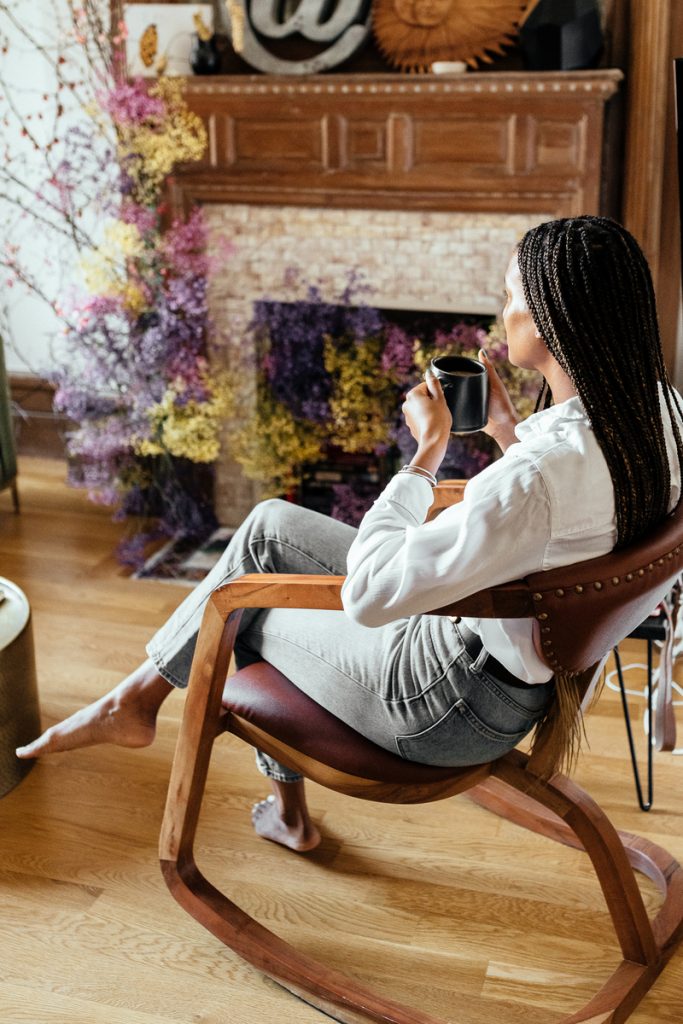
There’s a common misconception that couples therapy is just for couples with major issues to work out. Some may also think that they’re not ready—that couples therapy is only for those partners who have been together for a long time. “We’re not there yet,” is what I hear from people when they’re beginning to notice couples therapy signs that it might be time to schedule an appointment. In reality, when two people enter a relationship, even in the early days, it’s totally normal for some conflict to arise. It’s part of being human!
The beautiful and juicy success in a relationship is built by learning how to work through that conflict and make it to the other side feeling heard, respected, and stronger. Getting ahead of repeat arguments, learning how to effectively communicate as a couple, and building trust are tools that lay a beautiful foundation for any relationship. And guess what? This is true at any point in the game.
Featured image by Michelle Nash.
In this article

Couples Therapy: Signs It Might Be Time to Consider a Visit
Contrary to the popular belief, things don’t need to be “bad” before seeking therapy. It’s actually more helpful to consider couples therapy before so much resentment and anger builds that it takes longer to let go and move forward. Think of it as seeking out a safe space to work through challenges and strengthen your relationship when problems are identified rather than sitting with anger or sadness indefinitely. It’s proactive for your relationship and your emotions to nip problems in the bud.
Still not sure if it’s time? I’ll highlight a few common spaces of relationship conflict that may point to the benefit of seeking support.
It’s proactive for your relationship and your emotions to nip problems in the bud.

1. You find yourself in the same pattern of conflict
When your relationship spirals into the same arguments and patterns, it’s a sign that what you’re doing isn’t working. This is a great time to bring in an expert. Hearing new solutions and having another brain work on a repetitive issue allows you and your partner to view it from a different perspective.
Oftentimes, repetitive arguments are the most heated ones as they’ve had some serious time to build. This can make it extra hard to see outside our own field of vision. Furthermore, having a therapist help you and your partner identify the root of the issue rather than find a temporary solution will help solve the issue rather than put a band-aid on it. Whether it’s a pattern of misunderstandings or a one-time event that has disrupted your relationship, a couples therapist can help you both find common ground and work toward a resolution.

2. One or both partner’s needs aren’t being met or heard
Plain and simple—many kinds of unmet needs, ignored over time, foster resentment in a relationship. Some of the most damaging issues in relationships stem from needs that deserve attention and time simply being ignored. All humans desire and need recognition. This is especially true if something isn’t working in a relationship.
Sometimes, needs are ignored because the person with the specific needs is afraid of conflict or hesitant to speak up. Other times, the partner won’t address the need or doesn’t consider it “important.” Having a partner who will listen to your needs and who considers them important is paramount to feeling loved and accepted.
It’s not so different from parenting in some ways. Humans—small and large—need to feel secure and safe to blossom. If your needs aren’t being heard, it can be helpful to have a therapist help you relay your concerns. It can be hard to ask for what we need or even put words to those needs. Don’t hesitate to seek out help as you find your voice in your relationship.

3. Your relationship feels more negative than positive
All relationships have positive and negative aspects. I can’t emphasize enough how normal conflict is and how we need to feel comfortable with some arguing or bickering. Sometimes we need to hash things out and feel a lot of big feelings before we find the solution with our partners.
That being said, pay attention if you’re feeling more conflict than peace, your interactions with your partner are mostly negative, or you don’t have anything to look forward to together. Now’s the time to start breaking those patterns and solving some of the issues that are leading you to feel so much negativity. Are you holding onto something you’ve buried or failed to address in the past? Are your needs not being met? Seeing a couples therapist can help you parse out what’s going on and move toward more lightness, happiness, and ease in your relationship.

4. You’re thinking about infidelity or are experiencing a loss of intimacy
Infidelity can be one of the most devastating challenges a relationship can face. However, it can also be a pivotal point in moving forward and solving some of the issues that lead to infidelity in the first place. Infidelity does not always have to end a relationship. Many partnerships can move past infidelity and become stronger in the end.
If you and your partner are struggling to move past an affair, couples therapy can help you work through the emotions and rebuild your relationship. A therapist can provide a safe space for both partners to express their feelings, work through their anger and hurt, and move toward forgiveness and healing.
Furthermore, just admitting that you’ve had the thought or have been seeking something more—despite not acting on it—is a big clue that something needs to change. Infidelity often stems from a loss of intimacy that’s left unaddressed. Intimacy is a crucial aspect of any relationship, and a loss of intimacy can be a sign that something deeper is going wrong.
If you and your partner have lost the spark and are struggling to connect emotionally or physically, couples therapy can help you get back on track before potential infidelity creeps in. A therapist can help you explore the reasons for the loss of intimacy and work with you to reignite the passion in your relationship.

How to Ask Your Partner to Go to Therapy With You
If you’re experiencing any of the situations above, I hope you feel encouraged to explore creating a relationship with a couples therapist. But if you’re already convinced and your partner isn’t yet on board, moving forward can be difficult. Convincing an unwilling partner to join you isn’t always as easy as it sounds. Partner discordance in their willingness to attend therapy is exceedingly common.
Below are some strategies that may help get an unwilling partner on board:
Frame the idea as a way to be honest about your needs
Let your partner know you have some things you want to work on so you can feel stronger and better and have a longer-lasting relationship. But the way you’re doing things at present, your needs aren’t being met.
Don’t play the blame game
It never feels good to hear “we need to go to therapy because of you.” Especially because the reality is that it almost always takes two to tango. Even if you’re *absolutely positive* it’s not you, you’ll be surprised to learn in therapy that there’s probably plenty you can do better too! Make the offer that you also have something to work on. Explain that you think it would be helpful for both of you to share things with a third party.
Have a conversation about stigma
If your partner has certain beliefs about what it means to be in therapy, you can acknowledge them. But it’s important to express your own needs and beliefs, recognizing that they may differ, but still deserve respect. It’s fair to ask your partner to simply be willing and open to try.
Choose the counselor together
This fosters investment and a feeling that you’re moving into the therapy realm together. It’s not one person doing the work while the other is reluctantly along for the ride. Be sure your partner has room and space to express what’s important to them in session and takes part in the process.
Remember: You can’t force someone to go to therapy
Make sure they know that you are requesting they get on board and that you don’t intend to force them. However, help them understand how important it is to you and the success of your relationship that they join you. Requesting that they join rather than forcing their hand will again lead to mutual investment and better results.

Final Thoughts
I applaud you for taking the time to work on your relationship or even just begin to toy with the idea that couples therapy may be a needed next step. Normalizing caring for our mental and emotional health as individuals and as couples is so important. Never be afraid to put in the work so your relationship can reap the rewards. May your February be full of love and perhaps even new beginnings.
The post 4 Signs It Might Be Time to Consider Couples Therapy—Plus Tips for Getting Your Partner on Board appeared first on Camille Styles.

0 Comments